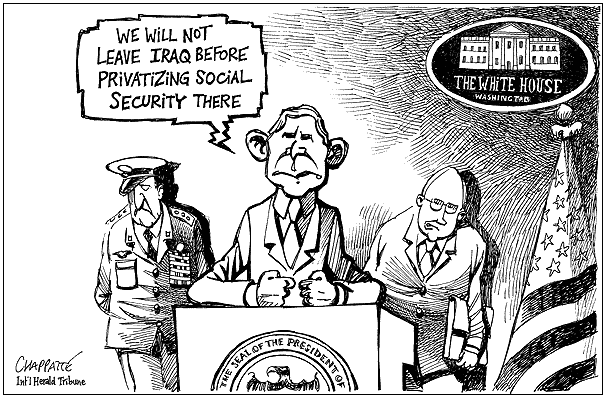Doctors Are Just Special - Part II

My hero!
Now this time out I actually find a doctor that seems to "get it", unlike last week with Doctors Are Just Special. So it's not that she's so special, really, she's simply exhibiting the sort of ethical behavior I'd expect of any responsible professional who's sensitive to conflicts of interest (COI) or with the perception of COI. Anyway, the person I'm talking about is the editor of the Journal of the American Medical Association (JAMA), Dr. Catherine D. DeAngelis. We get to know a bit about her in today's NY Times in an article by Donald G. McNeil Jr., Tough-Talking Journal Editor Faces Accusations of Leniency. Now if you read the article you soon come to appreciate that Dr. DeAngelis is being anything but lenient. But detractors like Dr. Jerome P. Kassirer, the former editor of the New England Journal of Medicine, apparently thinks they're being sloppy over at JAMA because a number of writers who submitted papers to the journal didn't fully disclose potential conflicts of interest (COI). Kassirer of all people should know better, I mean really, what's DeAngelis to do, hold a gun to the head of doctors to make sure they disclose possible COI? I'm sure that NEJM NEVER had this problem because guys like Kassirer were striking the fear of God into all authors submitting papers to his journal - righto.
Of course Dr. Kassirer should have talked to one of his colleagues before he went and shot off his mouth as we have Dr. Gregory D. Curfman, the current executive editor of The New England Journal of Medicine, agreeing with DeAngeils that checking up on every author submitting papers to a journal was impossible, and he went so far as to express admiration for Dr. DeAngelis - gotta love it, I do.
But then there's Dr. Thomas B. Stossel, a hematologist at Harvard who's a living example of the fact that even Harvard can hire the clueless. Let's be enlightened by the good Dr. Stossel:
“ ... academic socialists and the conflict-of-interest vigilantes” are stifling the biotechnology revolution by exaggerating the fear that doctors who own patents or company stock will fabricate data.
“This idea that money is evil and academia is made up of saints is nonsense,” Dr. Stossel said. “Some of my vaunted academic colleagues would run their grandmothers over.” He favors disclosure, too, he said, but journal editors “have acquired halos and become arbiters of scientific morality.”
“There’s this myth that if Mother Teresa, the Dalai Lama and Catherine DeAngelis got up and told us what to do, the public’s health would be better off,” he said. “That’s not true.”
Wow, little did I know that it's all about stifling doctors' ability to make money, and the reason my biotech mutual fund has been going down lately is because of people like Dr. DeAngelis - darn! The "conflict-of-interest vigilantes" - how do these nefarious vigilantes go about stifling the capitalist opportunities of doctors? Well, by insisting that they make clear their business associations when what they write about in a scientific journal bears on that business. What in the world is so hard about THAT? Stossel, though, in the spirit of the best spin malarkey, turns this into a "money is evil" crusade, though he does let us know that he, too, favors disclosure - so what's the problem? But those of us concerned with COI are either academic socialists (well, I'm not an academic so I'm excluded) or COI vigilantes, or COIV's for short - Carl Rove surely must love this guy.
What's DeAngelis, as I'm not aware of Mother Teresa, long dead, or the Dalai Lama having a dog in this fight, telling guys like Stossel to do? I'm confused, inasmuch as it seems to be exactly what Stossel says guys like he should be doing, at least with regard to disclosure in journal articles. Is it that the public's health would be better off? Well, yeah, maybe in fact it would be, in fact I'd bet it would be when financial interests compete with patient interests who's likely to lose that fight? Disclosure, getting it out there in the open, doesn't prevent a doctor from writing an article or making money on anything, but it does make it clear that he/she has potentially less than a totally impartial view on what's being written about and disclosure, I would think, would likely make them more careful about putting their name to something they weren't 100% certain, or as close as anyone can reasonably expect to be, confident wasn't a product of some agenda. But I'm sure Stossel is the sort of saint that would never put his pocketbook above his patients, in fact all doctors that seem to have a problem with this issue feel that way; they're special, as I pointed out last time.
Here are some of the entitlements that Dr. Stossel seems to want to protect that Dr. DeAngelis is combating:
... she says pharmaceutical companies do try to corrupt researchers by asking them to put their names on ghost-written articles and by using journals like hers to implicitly endorse their products.
Dr. DeAngelis will not let companies buy advertisements in issues in which their products are studied, and when she attends a medical dinner and discovers a drug company has paid for it, she said: “I don’t eat. It kills me, but I only drink water. Tap water.”
So being paid simply to put one's name on a research paper isn't a real problem in the world of Dr. Stossel, and there should be no concern with thinking that if someone pays for your meal, and is repeatedly allowed to do so, that you might be running into an ethical quandary. Dr. Stossel, being of Harvard, apparently thinks doctors are made of finer stuff and would NEVER be influenced by such things, in fact in his world it would seem that doctors are entitled to every freebie they can get because they would never be swayed by petty trifles like lunches, dinners, trips to the Bahamas ... hmmmm, we likely have to draw the line somewhere, but where oh where should it be? Well, no worry, doctors like Stossel aren't like us, they're special.
The idea isn't to keep doctors from making money, it's to make sure that any possible undo influence that may exist is clear and out in the open, which on its own sets a stage for conferring a doctor benefit of the doubt, unlike when some sort of possible COI is discovered later when an investigation into a drug, machine, or procedure is required due to death or harm. In addition, we get into a whole other area of concern and that's medical-focused companies, big Pharma, with their pretty faces that ply doctors with various freebies, surely not to unduly influence (cough, cough, and no, I'm ot being checked for a hernia as a write this), but rather to show some supplier/customer collegiality, or something like that.
Within DoD, which often enough has it's own ethics problems, there are specific guidelines regarding what you can accept from a vendor or anyone you do business with for whatever reason, and the limits are pretty stringent when you get right down to it - here you're trying to protect the interest of the taxpayer and sustain confidence in the viability of our defense establishment. With medical COI there's a real possibility of doing patient harm, something not quite as abstract as protecting the taxpayer's fiduciary interest. Isn't it about time that the medical community created something of the kind, laying out clearly what's acceptable ethically? My guess is that guys like Dr. Stossel, who seem to be more focused on protecting their right to capitalistic indulgence and apparently obscuring one's professional associations, might have a problem with this, which is likely why COI has been a problem for so long.




